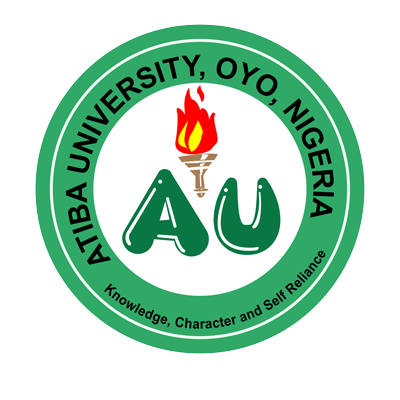Democratic government is a system of governance that prioritizes the participation of citizens in decision-making processes. This system is characterized by principles that ensure that the government is accountable to the people, promotes transparency and ethical behavior, and protects individual rights and freedoms. In this note, we will examine the principles of democratic government, their definitions, advantages, disadvantages, and features.
Ethics and Accountability in Public Office
Definition: Ethics and accountability in public office refers to the moral and legal responsibility of elected officials and government employees to act in the best interest of the public and to be transparent and accountable in their actions.
Advantages:
- Promotes honesty, transparency, and public trust.
- Ensures fair and just decision-making.
- Prevents corruption and abuse of power.
- Encourages responsible behavior.
- Enhances public confidence in government.
Disadvantages:
- Can be difficult to enforce.
- Can lead to conflicts of interest.
- Can create bureaucratic inefficiencies.
- Can limit political decision-making.
- Can be used for political purposes.
Features:
- Codes of conduct.
- Ethics committees.
- Whistleblower protection.
- Disclosure requirements.
- Conflict of interest rules.
Separation of Powers Definition:
Separation of powers refers to the distribution of power among different branches of government to prevent the concentration of power in one entity.
Advantages:
- Prevents concentration of power.
- Protects against tyranny and abuse of power.
- Encourages balanced decision-making.
- Promotes accountability.
- Encourages competition between branches of government.
Disadvantages:
- Can lead to gridlock and inefficiency.
- Can create conflicts between branches.
- Can lead to confusion over responsibilities.
- Can hinder swift decision-making.
- Can limit executive power.
Features:
- Legislative, executive, and judicial branches.
- Checks and balances.
- Independent agencies.
Checks and Balances
Definition: Checks and balances refer to the mechanisms that ensure that no one branch of government has too much power.
Advantages:
- Prevents abuse of power.
- Ensures equal representation.
- Promotes accountability.
- Encourages cooperation between branches.
- Protects individual rights.
Disadvantages:
- Can lead to gridlock and inefficiency.
- Can create conflicts between branches.
- Can lead to confusion over responsibilities.
- Can hinder swift decision-making.
- Can limit executive power.
Features:
- Veto power.
- Judicial review.
- Impeachment.
- Legislative oversight.
- Executive orders.
Individual and Collective Responsibility
Definition: Individual and collective responsibility refers to the responsibility of citizens to act in the best interest of society as a whole and to participate in civic engagement.
Advantages:
- Promotes a sense of community and shared purpose.
- Encourages personal responsibility.
- Fosters civic engagement.
- Helps prevent social problems.
- Strengthens democracy.
Disadvantages:
- Can be difficult to enforce.
- Can create tension between individual and collective interests.
- Can limit individual freedoms.
- Can be used for political purposes.
- Can be seen as intrusive.
Features:
- Civic education.
- Community service.
- Public service announcements.
- Social safety nets.
- Volunteerism.
Constitutionalism
Definition: Constitutionalism refers to the adherence to a written constitution that outlines the structure and limitations of government power.
Advantages:
- Provides a clear framework for government action.
- Limits government power and protects individual rights.
- Promotes stability and predictability.
- Encourages accountability and transparency.
- Ensures that the government acts in accordance with the rule of law.
Disadvantages:
- Can be difficult to amend.
- Can limit the government’s ability to respond to crises.
- Can create legalistic obstacles to effective governance.
- Can be used to justify unjust policies.
- Can create conflicts between the government and civil society.
Features:
- Written constitution.
- Bill of Rights.
- Judicial review.
- Constitutional amendments.
- Constitutional conventions.
VI. Rule of Law Definition: Rule of law refers to the principle that all individuals, including government officials, are subject to and accountable to the law.
Advantages:
- Promotes fairness and equality.
- Protects individual rights.
- Fosters stability and predictability.
- Encourages respect for the law.
- Helps prevent corruption and abuse of power.
Disadvantages:
- Can be difficult to enforce.
- Can limit government flexibility.
- Can be used to justify unjust policies.
- Can create conflicts between the government and civil society.
- Can be used for political purposes.
Features:
- Independent judiciary.
- Legal equality.
- Due process.
- Transparent legal system.
- Access to justice.
VII. Representative Government Definition: Representative government refers to the system of governance in which citizens elect representatives to make decisions on their behalf.
Advantages:
- Promotes equal representation.
- Encourages political participation.
- Allows for the representation of diverse interests.
- Fosters accountability.
- Promotes stability.
Disadvantages:
- Can lead to the concentration of power.
- Can limit direct citizen participation.
- This can create conflicts of interest.
- Can be influenced by special interests.
- Can limit minority representation.
Features:
- Elections.
- Political parties.
- Interest groups.
- Campaign finance regulations.
- Lobbying regulations.
Conclusion: In conclusion, the principles of democratic government are essential for promoting accountability, transparency, and individual rights and freedoms. Ethics and accountability in public office, separation of powers, checks and balances, individual and collective responsibility, constitutionalism, rule of law, and representative government are all essential elements of democratic government.
By understanding and applying these principles, we can ensure the continued success of our democratic institutions and protect our fundamental values as a society.












